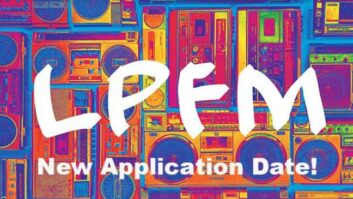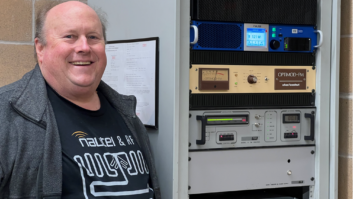A new citizens’ group called “Let The Cities In” is asking the FCC to authorize low-power FM radio stations below 50 watts in highly urban areas.
The 15-member group is composed of aspiring LPFM broadcasters and radio listeners who reside in “urban core” areas of the top 100 Arbitron radio markets. These urbanites are joined in the group by concerned citizens, according to LTCI attorney Don Schellhardt and technical advisor Nick Leggett, long-time LPFM advocates.
In a Petition for Reconsideration filed at the FCC on the agency’s recent expansion of LPFM, the group says FCC policy limits all LPFM licenses in all locations, even highly urban areas, to LP100 status (50 to 100 watts). “Because stations above 50 watts are often too large to ‘fit’ into crowded urban spectrum, the present ‘LP100s only’ policy would leave no room on the radio spectum for any LPFM stations at all in New York City, Detroit and San Jose,” according to the group.
Along the same line, Boston, Pittsburgh, Denver and San Diego would have only one LPFM station each, asserts LTCI. It estimates that, overall, at least 40 million Americans would have “severely restricted LPFM coverage or no LPFM coverage at all.”
As a solution, most LTCI members suggest the commission license only LP10 stations (1 to 10 watts) in highly urban areas. This shift to “LP10s only” would more than quadruple the number of LPFM stations in San Francisco and Los Angeles, as an example. As a fallback, LTCI prefers the agency license only LP50 stations (1 to 49 watts) in highly urban areas.
The group believes that the “LP100s only” policy is counter to the Local Community Radio Act mandate to assure abundant licensing opportunities for both translator stations and LPFM stations. In the petition, the group asserts the FCC’s decision to eliminate the LP10 class of stations and impose an “LP100s policy” everywhere, were questionable.












